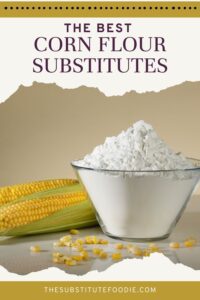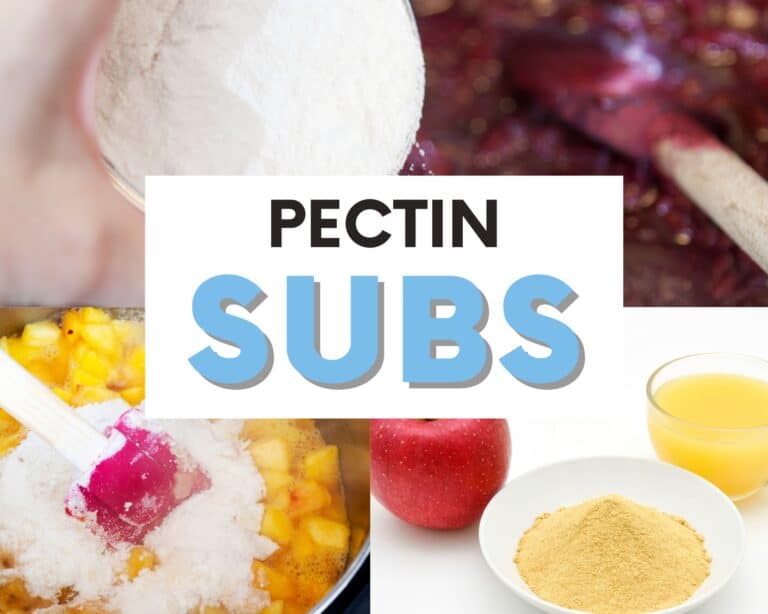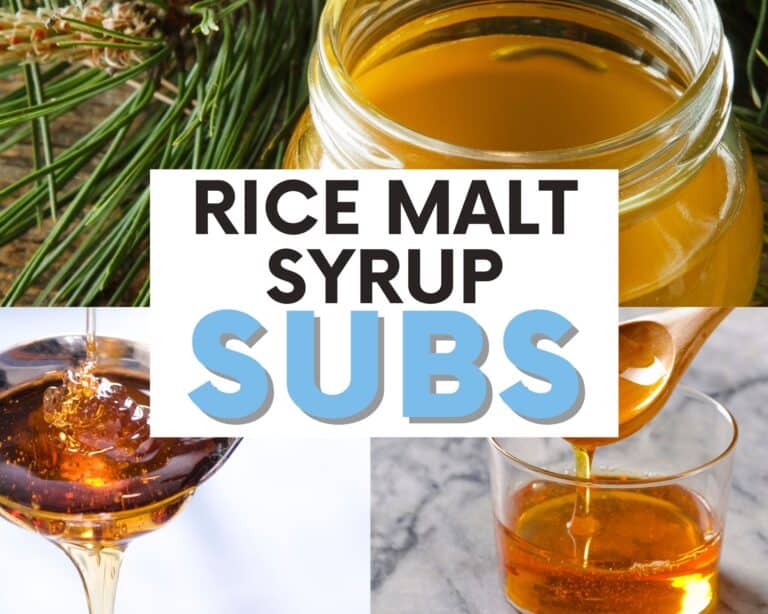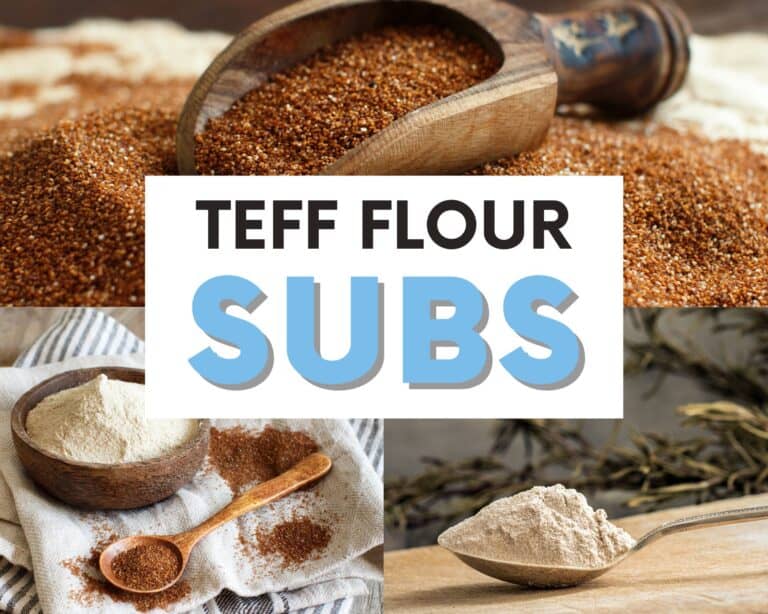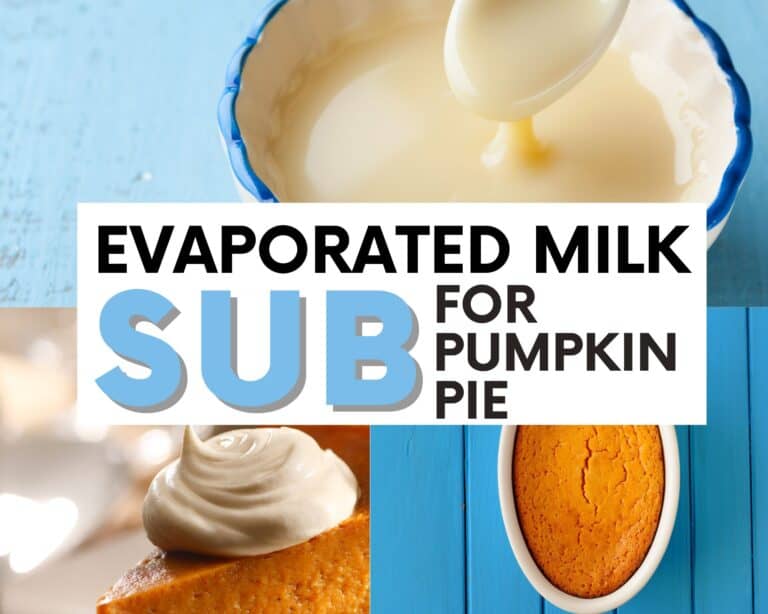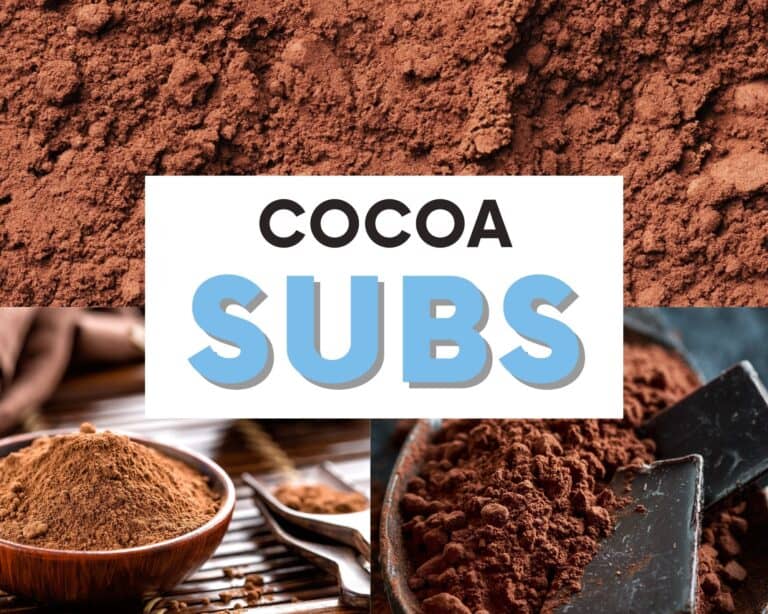The BEST Corn Flour Substitutes To Try
This post may contain affiliate links. Please see my disclosure policy for details.
When it comes to gluten-free and grain-free baking, corn flour is often used as a key ingredient. But it’s also a key ingredient in thickening your favorite sauce, gravy, or demi-glace.
However, sometimes you run out of corn flour or you are cooking or baking for someone who is sensitive towards corn. So, what are the best substitutes for corn flour? Keep reading to find out!
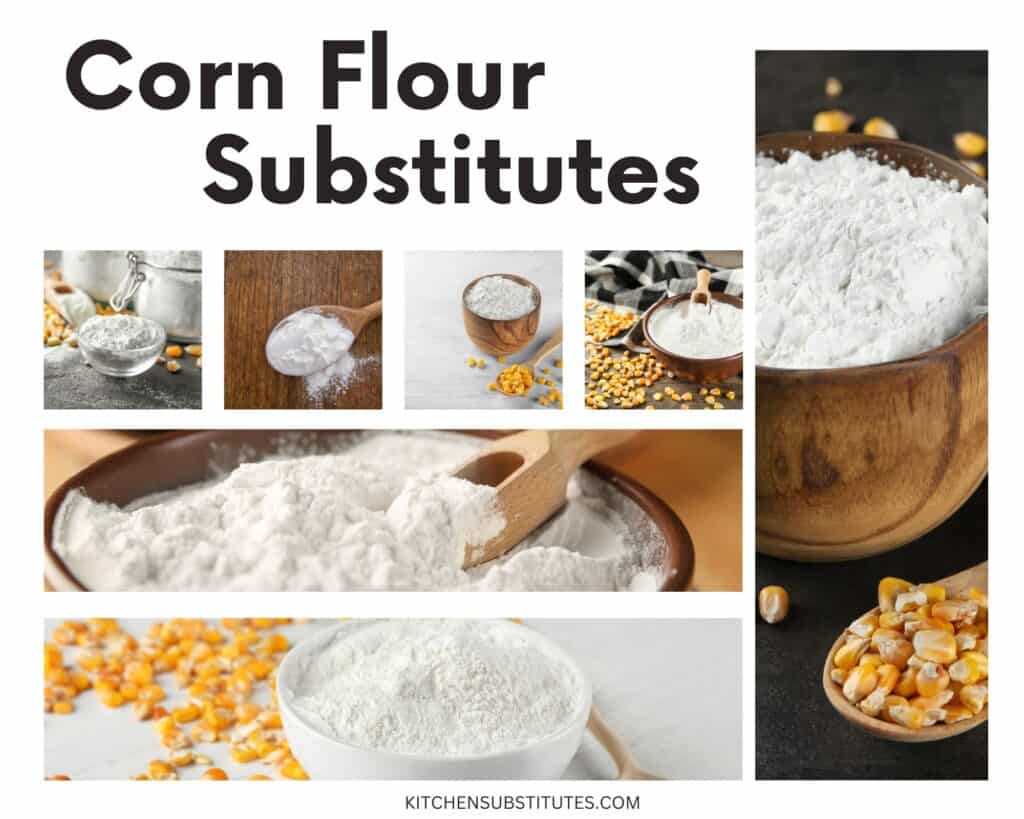
What Is Corn Flour?
Corn flour is also known as cornstarch. It’s not the same as cornmeal. It is a fine, powdery starch that is derived from the corn kernel. It is used in a variety of ways, including as a thickening agent, binder, and stabilizer.
Cornstarch has a neutral flavor and is heat-stable, making it an ideal ingredient for many recipes. When combined with water, cornstarch can also be used as a natural adhesive or even sealant (aka paste!).
In addition to its culinary uses, cornstarch has many other applications. It is often used as a polish or cleaner, and it can also be used to absorb moisture or oil spills. It’s pretty handy to have in the kitchen but when you are out it can be a nightmare!
Substitutes for Corn Flour
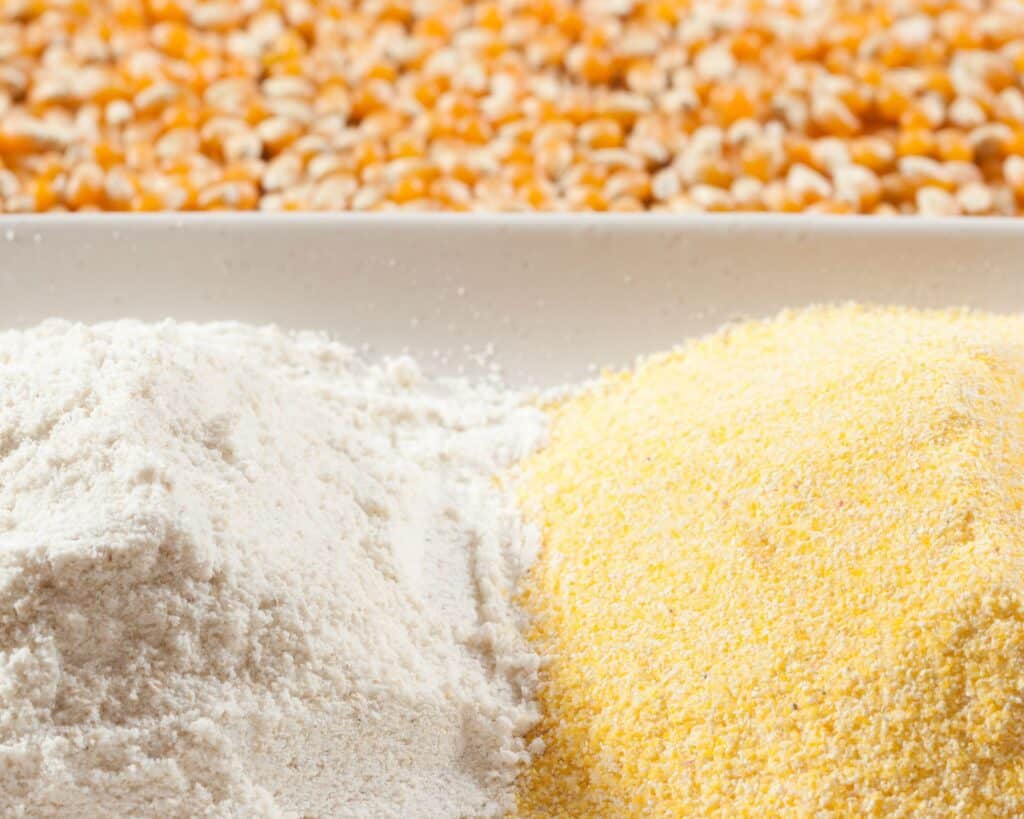
All Purpose Flour
For Thickening: 3 tablespoons of all purpose flour for 1 tablespoon of corn flour.
All purpose flour is a great corn flour substitute because it is similar in texture and taste. Plus, the chances of having it on hand in your kitchen is high.
The main difference is that all purpose flour is made from wheat, while corn flour is made from corn. All purpose flour can be used to thicken and dredge just like corn flour.
The biggest issues when using this ingredient is that it’s not gluten free, and you need to make sure you cook out the flour taste, and it will make your final dish not as glossy or transparent as corn flour (speaking of sauces and glazes)

Arrowroot Flour (Gluten-Free)
For Thickening: 1 to 1.5 tablespoons arrowroot flour for 1 tablespoon of corn flour.
Arrowroot flour is made from the arrowroot plant and it’s similar in texture to tapioca flour. It’s perfect for thickening gravies, sauces, and soups. Arrowroot is similar to corn flour in that sauces more glossy. It also has the perk is that it can handle being a thickener for foods that cooked for long periods of time.

White Rice Flour (Gluten-Free)
For Thickening: 2 teaspoons rice flour for 1 tablespoon of corn flour.
White rice flour is probably the most popular substitute for corn flour. It’s made from finely milled rice and it has a similar consistency to corn flour. Rice flour can be used in a one-to-one ratio in most recipes. If using it as a thickener then I would recommend adding the rice flour to cold liquid first. This will help prevent clumping.

Potato Starch or Potato Flour (Gluten-Free)
For Thickening: 2 teaspoons potato starch for 1 tablespoon of corn flour.
Potato starch is also known as potato flour. It’s made from the starch of potatoes and it has a light and fluffy texture. potato starch flour is perfect for baked goods like cakes, cookies, and quick breads. And it works great as a substitute for corn flour. But unlike corn flour, it can handle higher temperatures.

Tapioca Starch
For Thickening: 2 tablespoons tapioca flour for 1 tablespoon of corn flour.
Tapioca flour is made from the cassava plant and it’s a great grain-free alternative to corn flour. Which is great for those on a paleo diet or need to avoid grains. It’s got a neutral flavor and it’s very versatile. Tapioca flour can be used in pretty much any recipe that calls for corn flour. According to Masterclass, “Root starches thicken at lower temperatures, making them great for thickening a sauce immediately after removing it from the stove.”

Clear Jel
For Thickening: 1.5 tablespoons Clear Jel for 1 tablespoon of corn flour.
Clear jel is typically used as an commercial thickener for bakeries, but it can also be used as a corn flour substitute in recipes. Clear jel has a similar consistency to cornstarch, because it’s a modified version of it! So, it’s perfect for thickening sauces and gravies. However, clear jel can be hard to find in stores, so if you can’t find it, you may want to try one of the other substitutes on this list or grab some online.

What NOT to use as Alternative for Corn Flour
All the suggestions above will work as a replacement for corn flour either as a thickener or in baking. But the internet is kind of crazy. People make some weird suggestions like using charcoal as a teff substitute. I wanted to clear the air so you don’t make a mistake when finding a replacement for corn flour.
- Cornmeal – Even though both corn flour and cornmeal come from corn they are not interchangeable. Plus cornmeal will give you a distinct corn flavor. It is best left for making yummy cornbread.
- Buckwheat Flour – Buckwheat has the ability to thicken but it has a strong flavor that can over power even in some baked goods. If you know what buckwheat tastes like and are ok with then go for it, but I wouldn’t recommend especially for sauces, soups, glazes and more.
- Masa Harina – Like cornmeal, Masa Harina is also a type of flour made from ground nixtamalized corn. (Nixtamalization involves soaking field corn kernels in an alkaline solution of calcium hydroxide or wood ash.) It is not the same. It will thicken up a soup, but if you are looking for something like cornstarch. This is a no go.
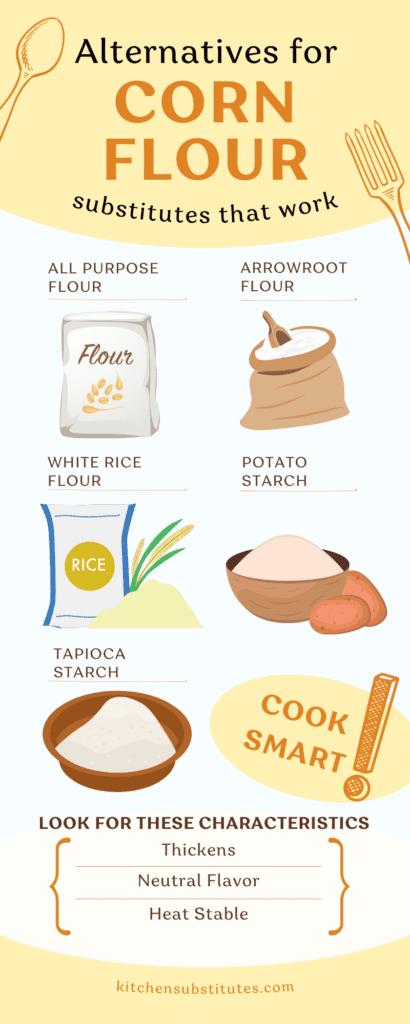
My Final Thoughts on Corn Flour Substitutes
There are many substitutes for corn flour that will work well in your recipe. All purpose flour, arrowroot flour, tapioca flour, potato starch, and clear jel are all good substitutes that have a similar texture and taste to corn flour.
When substituting one of these ingredients for corn flour, keep in mind that you may need to change the liquid ratio in your recipe since they all absorb liquid differently. Happy Cooking!
